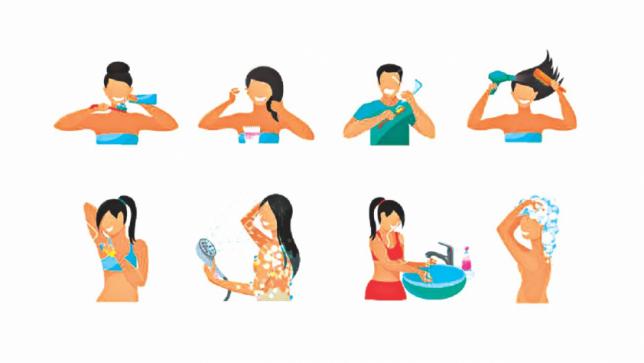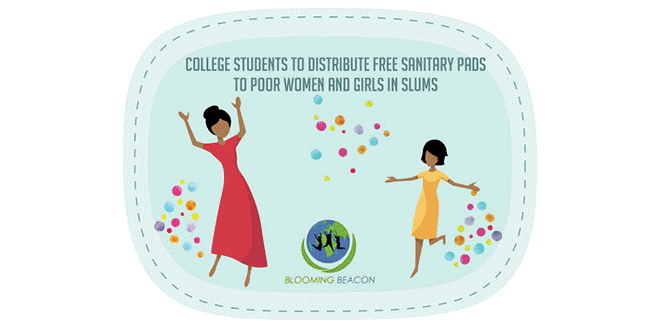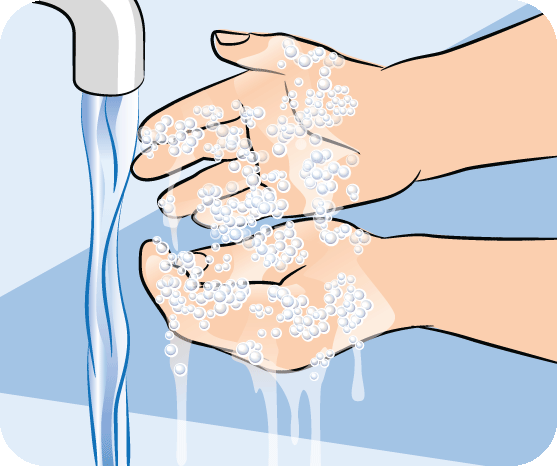Hygiene is a series of practices performed to preserve health. According to the World Health Organization (WHO), “Hygiene refers to conditions and practices that help to maintain health and prevent the spread of diseases.”Personal hygiene refers to maintaining the body’s cleanliness. Medical hygiene pertains to the hygiene care practices related to the administration of medicine and medical care that prevents or minimizes the spread of disease.

Medical hygiene practices include:
- Isolation or quarantine of infectious persons or materials to prevent the spread of infection.
- Sterilization of instruments used in surgical procedures.
- Use of protective clothing and barriers, such as masks, gowns, caps, eyewear, and gloves.
- Proper bandaging and dressing of injuries.
- Safe disposal of medical waste.
- Disinfection of reusables (i.e., linen, pads, uniforms).
- Scrubbing up, handwashing, especially in an operating room, but in more general health-care settings as well, where diseases can be transmitted.
Ethanol-based sanitizers.
Home hygiene pertains to the hygiene practices that prevent or minimize the spread of disease at home and other everyday settings such as social settings, public transport, the workplace, public places, etc.
Hygiene in a variety of settings plays an important role in preventing the spread of infectious diseases. It includes procedures used in a variety of domestic situations such as hand hygiene, respiratory hygiene, food and water hygiene, general home hygiene (hygiene of environmental sites and surfaces), care of domestic animals, and home health care (the care of those who are at greater risk of infection).
At present, these components of hygiene tend to be regarded as separate issues, although based on the same underlying microbiological principles. Preventing the spread of diseases means breaking the chain of infection transmission. Simply put, if the chain of infection is broken, the infection cannot spread. In response to the need for effective codes of hygiene in the home and everyday life settings the International Scientific Forum on Home Hygiene has developed a risk-based approach based on Hazard Analysis Critical Control Point (HACCP), also referred to as “targeted hygiene.” Targeted hygiene is based on identifying the routes of pathogen spread in the home and introducing hygiene practices at critical times to break the chain of infection.

Respiratory hygiene
Correct respiratory and hand hygiene when coughing and sneezing reduce the spread of pathogens particularly during the cold and flu season. Carry tissues and use them to catch coughs and sneezes, or sneeze into your elbow. Dispose of tissues as soon as possible. Food hygiene is concerned with the hygiene practices that prevent food poisoning. The five key principles of food hygiene, according to WHO. Prevent contaminating food with mixing chemicals, spreading from people, and animals. Separate raw and cooked foods to prevent contaminating the cooked foods. Cook foods for the appropriate length of time and at the appropriate temperature to kill pathogens. Store food at the proper temperature.
Use safe water and raw materials
Laundry hygiene involves practices that prevent disease and its spread via soiled clothing and household linens such as towels. Items most likely to be contaminated with pathogens are those that come into direct contact with the body, e.g., underwear, personal towels, face cloths, nappies. Cloths or other fabric items used during food preparation, or for cleaning the toilet or cleaning up material such as feces or vomit are a particular risk.

Disinfectants and antibacterials in home hygiene
Chemical disinfectants are products that kill pathogens. If the product is a disinfectant, the label on the product should say “disinfectant” or “kills” pathogens. Some commercial products, e.g. bleaches, even though they are technically disinfectants, say that they “kill pathogens” but are not actually labeled as “disinfectants”. Not all disinfectants kill all types of pathogens.
Good personal hygiene Habits:-
Good personal hygiene habits include:
- washing the body often. If possible, everybody should have a shower or a bath every day. However, there may be times when this is not possible, for example, when people are out camping or there is a shortage of water If this happens, a swim or a wash all over the body with a wet sponge or cloth will do
- cleaning the teeth at least once a day. Brushing the teeth after each meal is the best way of making sure that gum disease and tooth decay are avoided. It is very important to clean teeth after breakfast and immediately before going to bed
- washing the hair with soap or shampoo at least once a week
- washing hands with soap after going to the toilet
- washing hands with soap before preparing and/or eating food. During normal daily activities, such as working and playing, disease-causing germs may get onto the hands and under the nails. If the germs are not washed off before preparing food or eating, they may get onto the food
- changing into clean clothes. Dirty clothes should be washed with laundry soap before wearing them again
- hanging clothes in the sun to dry. The sun’s rays will kill some disease-causing germs and parasites
- turning away from other people and covering the nose and mouth with a tissue or the hand when coughing or sneezing. If this is not done, droplets of liquid containing germs from the nose and mouth will be spread in the air and other people can breathe them in, or the droplets can get onto food
Related posts:
- What is mental health and why is important?
- Ways to retain everything you read/learn
- How to manage everything in college
- Why we must acquire Good Habits
- 9 Negative impacts of hostel life on a student
- Nine positive impacts of hostel life on a student
- Negative effects of social media on students
- 10 Impacts of the new education policy on students




















